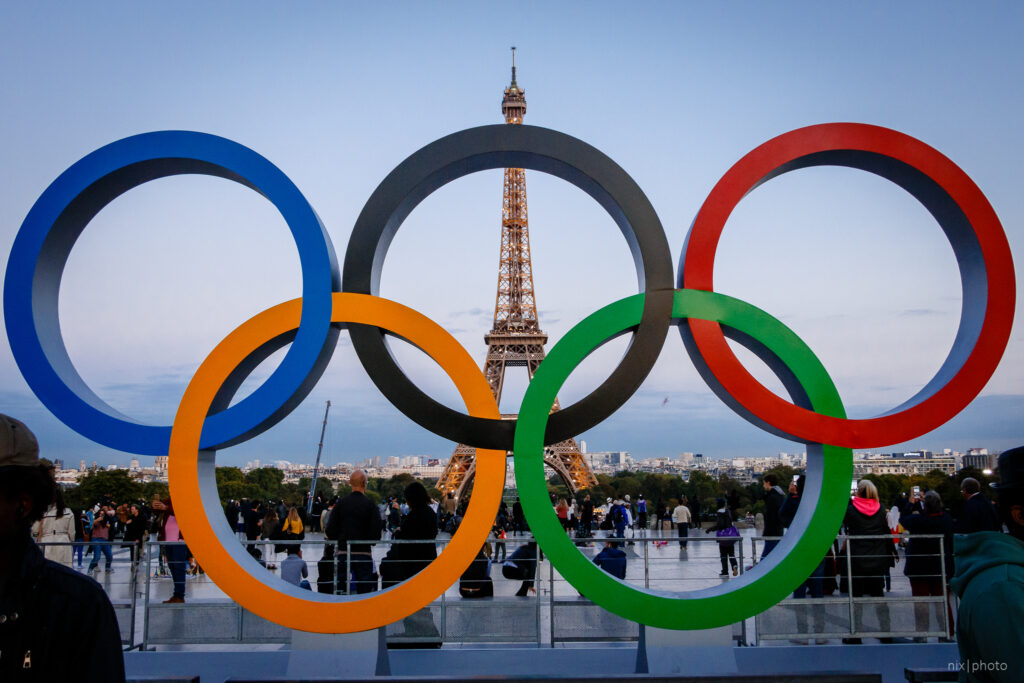Todd Harris: Counting down the days to the Olympics and Paralympics
It was an unseasonably warm Friday in February that felt almost summer-like. Fitting, as American presenter and commentator Todd Harris looks ahead to the Paris Olympics, which are now less than 100 days away.
Harris knows which Olympic sports he’ll cover – BMX and skateboarding. What he doesn’t know is where he’ll be covering them. Hotel price gouging means networks around the world could save big by trimming on-location talent and instead broadcasting remotely from their studios. So while those covering the big three sports — swimming, track and field, and gymnastics — will forge ahead as usual in the city of lights, the majority of others on NBC’s coverage might be 3,000 miles away in Stamford, Connecticut. Talk about “the dark side of broadcasts,” as Harris put it.

These three sports make up the majority of NBC’s Olympics coverage. Keeping the remaining employees working from the studio remotely would save the company millions of dollars.
This will be the tenth Olympics Harris covers and while he’ll be somewhat disappointed if this is the final decision, he understands it from a business point-of-view. And, when it comes down to it, much of the broadcast will remain unchanged for announcers like him and viewers alike.
“Is the product changing that much? You know, for the most part, no. Until the feed goes down and you lose visuals, then it’s like, I’m 3,000 miles away. Whereas if I was on site, I could just look out the window and I can still tell you what they’re doing. I’m looking right at the halfpipe or I’m looking at the skateboard course I can tell you exactly what they’re doing.”
It’s not just the risk of losing the live feed when moving to a studio, remote announcers are also no longer amidst the action. So much of covering live sports involves painting a detailed picture of the atmosphere for viewers at home. What’s the crowd doing? Is the athlete pacing and taking deep breaths? Even, what does the dirt feel like at the BMX track?
Harris explained, “I’m here to document the game. And part of the game is the environment around the game and the sights and the feel and how cold it is.
“The crowd is rambunctious and the wind is blowing left to right. These are things you get being there. And you don’t get that being in a booth with a headset on and air conditioning and 3000 miles away.”
These Olympics also differ in the fact that they are accomplishing something previous games failed at. Most of the events will take place amid the city’s most famous sites – the Paris bid had the aim “to enable urban sports to become established in their natural environment, away from stadiums, at the heart of the city.” Skateboarding, for instance, will take place right on the famous square, Place de la Concorde, in an open-air venue.
Construction on La Concorde
Nonetheless, commentating on a sport on such a historic site is something Harris is really looking forward to. And the excitement of his summer won’t stop there.
After covering BMX and skateboarding at the Olympics, Harris will turn his attention to the Paralympics a month later.
He emphasised, “I love, love love doing the Paralympics. Although it is really hard. It is much harder than almost any other sport I cover because it’s full of what I call ‘landmine words.’
“It’s just the jargon changes a lot. So you have to make sure you’re up on what the appropriate jargon is, or how [the athletes] want to be defined, or described.”
Even with the additional education and potential for criticism of his work, in the end, his preparation and approach to covering the Paralympics is the same as that for covering the Olympics. Harris said, “You’re still covering an event. You still want the facts, you still want the records, you still want that, and then you want to celebrate the athletes.”
Though Harris loves covering the Paralympics – if that was not clear in his use of the verb three times – one of the hardest parts is sometimes talking about the athletes’ backstories.
“There was a girl who was in the Paralympics, I think last go around, and her story is so heart-breaking that it almost eclipses what she’s there to do. And that’s where I feel you have to be really careful. Because her backstory could be like, we don’t care about this event she’s about to swim.”
Harris’s job, though, is to find a way back to the sport – to make viewers care about the event in addition to the athletes taking part. Luckily, after covering more than 15 Olympics and Paralympics in his career, this is something Harris excels at. Bringing an equal amount of empathy and know-how to the coverage is part of what he enjoys so much about the work.
View this post on Instagram
Harris reflected, “I don’t think I’ve had one bad Olympic experience. But it is hard work. It is 15-17 days of long, long hours and a lot of eyeballs are on your work.
“If you come away and someone says, gosh, I don’t know who the announcer was, but he was good or she was good, then you’ve done your job.
“Because you are not there to impede or take over or be the show. It’s the athletes. So your job is to inform, incite, entice, amplify, cover the thing, and then walk away with your head held high.”